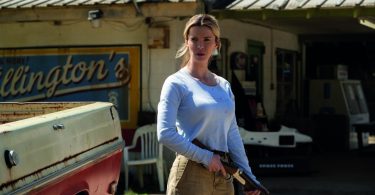The power of cinema lies in the effects films have on people. Films can make you cry, laugh, alter your opinions, influence you, be representative of a milestone in your life and can even change your life. Our new weekly film column, ‘The Film That…‘, explores the impacts of cinema on people. This week, Deputy Editor Kealie Mardell shares why The Breakfast Club never fails to make her smile!
Everyone has a go-to feel good movie, and if you don’t, then you should. It’s the film that you turn to when you’re down, the one you watch when you’re in bed not feeling your best, or even just one to enjoy when you need a smile. For me, that film has always been The Breakfast Club.
This 1985 classic sits at the heart of the Brat Pack era; alongside director John Hughes other famed successes Pretty in Pink and Sixteen Candles, and starring my favourite ‘80s sweetheart, Molly Ringwald.
What is The Breakfast Club?
If you’ve somehow made it this far in life without watching The Breakfast Club here’s the short version. Five high school students representing distinct teen stereotypes are forced to endure a Saturday detention together, under the tyranny of principal Vernon.
Who are the five characters? Our iconic teens are the princess, Claire Standish (Molly Ringwald), the criminal John Bender (Judd Nelson), basket case Allison Reynolds (Ally Sheedy), brainy Brian Johnson (Anthony Michael Hall) and athlete Andrew Clark (Emilio Estevez).

What The Breakfast Club does exceptionally well, and others that followed have failed at, is to deliver those high school stereotypes but with enough depth to avoid a cringeful cliché. Each character is recognisable, but not so overdrawn that they stop being real people.
The acting itself is executed with a brilliant sense of humour. The Breakfast Club has a sarcastic and punchy script, from Benders one-liners about Barry Manilow’s wardrobe and the imperfections of falling screws, to Andrew’s insightful views like:
“We’re all pretty bizarre. Some of us are just better at hiding it, that’s all.”
Returning to the plot, we see each character given the chance to tell their story, and reveal what lies beneath the stereotypical exterior. They come together and begin to see the similarities between them.
While their task for the detention is to each write an essay about who they think they are, through the dreary Saturday they learn more about who they each are, and who other people see them as, leaving them to question whether school will ever be the same.
Why is The Breakfast Club the ultimate feel-good?
When I watched The Breakfast Club during my time at school, it was safe to say that I related to the outsider struggle embodied by our ‘basket case’ Allison. Almost anyone watching the film is going to find something relatable in one of the characters, and by playing on that high school insecurity you’re drawn in. But what The Breakfast Club does is show you the insecurity that others feel, and that regardless of which clique you find yourself in, everyone is experiencing their own struggles.
The Breakfast Club teaches us is that we’re all little bizarre, but our differences don’t have to stop us from coming together. There’s a sense of hope, but by delivering it with a heavy dose of teenage angst and humour it’s subtle enough to not be sickening.
Now, every time I watch The Breakfast Club I smile. I laugh at my own high school experiences and hold my head high that I survived. I smile and think of all the people each character reminds me of. Whatever your age The Breakfast Club has a timeless nostalgic feel to it.
We’re all more than just a brain, an athlete, a basket case, a princess or a criminal. And with that, let me leave you with one of the most iconic title songs of filmmaking history – don’t you, forget about me!








